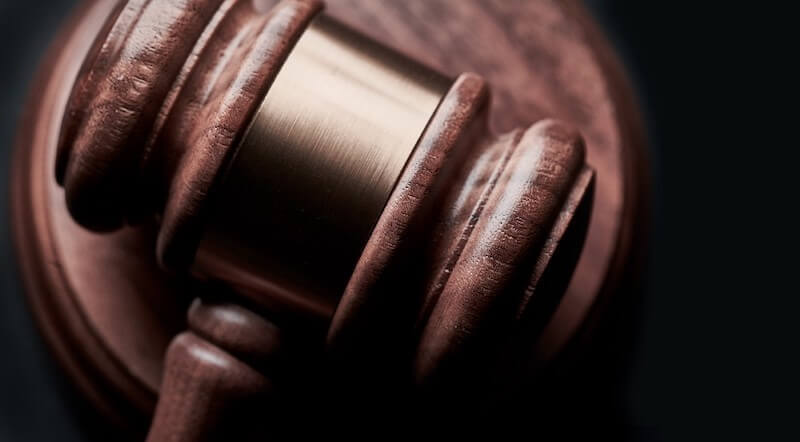The 11th Circuit Court of Appeals in Johnson, Dinn v. Caraf Oil upheld a district court ruling that fined both the attorney and the plaintiff in a disability lawsuit.
Dinin is an attorney, Johnson is the d/Deaf plaintiff. Together, they filed 26 ADA cases in the Southern District of Florida, all against gas station owners located throughout Miami-Dade and Broward counties over the lack of captions at gas station pumps that played video.
The court of appeals found that the “overriding purpose of these disability lawsuits was to collect payments in an unethical fee-sharing arrangement between the litigant and the lawyer who represented him.”
Specifically the court found that:
- There were frivolous claims;
- That the plaintiff and his attorney knowingly misrepresenting the time they counted as billable, and;
- That both the plaintiff and his attorney made misrepresentations to the court.
As a result, the District Court imposed sanctions against Mr. Johnson and Mr. Dinin, including monetary penalties, community service, and an injunction prohibiting them from filing future ADA claims without approval. On appeal, the verdict against Mr. Johnson (the d/Deaf plaintiff) was upheld, and it was determined that Mr. Dinin (the attorney) did not have standing to appeal.
What are the differences between this case and 4000+ accessibility cases that will be filed in 2021?
Difference #1: Administrative Remedies
In Florida, before filing litigation, those claiming ADA violations must first exhaust administrative remedies as required by the Florida Civil Rights Act (FCRA). The FCRA requires that plaintiffs file a complaint with the Florida Commission on Human Relations and follow certain administrative pre-suit requirements. Mr. Johnson failed to do this.
Difference #2: Bill Inflation / Fee Splitting
Mr Dinin was accused of systemcly inflating his bill, which benefitted Mr. Johnson since they were splitting fees. Fee splitting is specifically called out as a violation of the Rules Regulating the Florida Bar. Fee splitting under some circumstances in California and New York — the states where the majority of accessibility lawsuits are filed — is allowed. Inflating bills because you are recovering legal fees as part of your case is always a one-way ticket to a disciplinary action if you get caught, regardless of what type of case it is.
Difference #3: No remedial relief requested
The majority of the settlement agreements did not include remedial relief, which in this case would be requiring captions for the gas station pump videos. In the small number of cases that did include remedial relief, the relief was turning off the videos at the gas pumps, not captioning the videos. Therefore, no d/Deaf individuals received improved service from the litigation. Additionally, there was email between Dinin and Johnson effectively stating that their motivation was to obtain payment of legal fees, not ADA compliance.
Why is this such a big deal?
The ADA only allows for three solutions to accessibility issues:
- Private conversations with the people controlling the fix, which in my experience, rarely resolves the problem the way I want it solved — note, if you get someone like Lainey Feingold or DRA involved in your “private conversation” the discriminating parties may take it more seriously. Going in to complain to the store manager on your own almost never, ever works.
- Department of Justice complaints, where maybe only 1 out of ever 100 get accepted and acted on;
- Private litigation.
If the sanctions in Johnson, Dinn v. Caraf Oil have a chilling effect on legitimate litigation, the most powerful of the arrows in the disability rights quiver will have been broken in half.
I am thinking about filing an ADA lawsuit, what do I do?
Don’t let this litigation deter you. The Eleventh Circuit is quite conservative, and other more liberal circuits may not have made the same decision.
- Make sure you (or your attorney) have researched whether administrative relief has to be attempted before litigation, and if so, follow the requirements to the letter.
- Attorneys — don’t inflate your bills! Plaintiffs-check the attorneys time lots and question anything that looks like “inflation.” Anything sketchy that your attorney gets caught doing may impact your credibility.
- Check the fee splitting laws in your state.
- Make sure your litigation does not look like a cash grab or a cookie cutter case.
- Include demands for remediation in the “relief” section of your complaint.
- Plead with specificity. Include as many details as possible about what happened, when it happened, what you were told by people in the retail operation when you reported the problem. Stick to the truth, making stuff up will bite you in the ass. I was involved with one case where the plaintiff included an itemized list of discriminatory things she claimed she was told when she went into the store in her complaint. Video showed she never stepped foot inside the store. Needless to say, the complaint was dismissed with prejudice.
